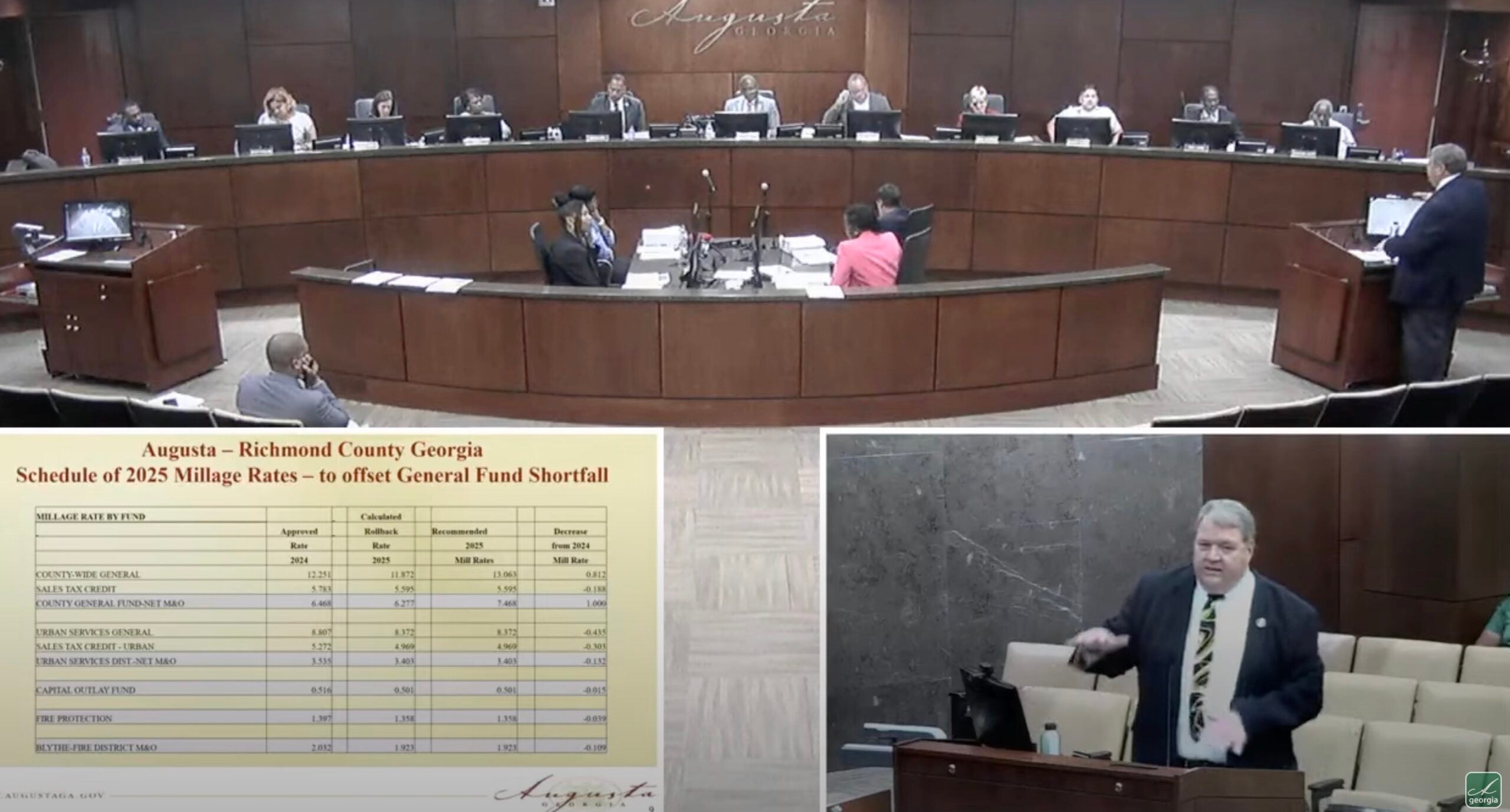Augusta commissioners are weighing a possible property tax increase to close an estimated $10.9 million budget shortfall for 2025.
Interim Finance Director Tim Schroer told commissioners Tuesday the deficit stems from a combination of rising costs and unexpected expenses. It leaves two main options: Draw from the city’s $43 million fund balance or raise the millage rate, he said.
The shortfall overtook projected revenue gains of more than $4 million in property taxes, sales taxes and franchise fees, he said.
Unforeseen expenses include $3.5 million of the $6.5 million Augusta had to return to the U.S. Treasury, Schroer said.
Treasury demanded the refund after Augusta Housing and Community Development failed to spend pandemic grant funds on emergency rental assistance. An audit is expected to determine how the funds instead were spent, and department director Hawthorne Welcher later resigned.
HCD was able to come up with $3 million, but the general fund had to cover the rest, Schroer said. Plus, some $2.2 million in penalties is looming, he said.
Other overruns include $400,000 more for the Richmond County Sheriff’s Axon contract, $1 million more for prisoner healthcare, and $7.8 million in employee healthcare after a “bad year” for claims, he said.
Schroer called raising the current 22% employee insurance contribution “critical.” Commissioner Brandon Garrett said it’s currently a “fantastic deal” for employees, including himself.
A 1-mill countywide increase would raise about $8 million, adding $89.33 to annual city property taxes on a $200,000 home, Schroer said.
Mayor Garnett Johnson urged spending cuts. “This is a very serious and concerning matter,” he said. Commissioner Don Clark called it “putting the burden of mismanagement right on the taxpayers’ backs” and said the timing, with pending streetlight and garbage fee hikes and a sales tax referendum is “horrible.”
Clawing back the difference in the fourth quarter would be a big challenge, Schroer said. Only about $60 million of Augusta’s $206 million in general fund revenue is not controlled by elected officials, he said.
Garrett suggested targeting the urban services district or keeping rates “flat” at current levels, which would still require advertising a tax increase. Augusta has adopted the rollback rate every year since 2014, and the 2024 millage is lower than in 2005.
Using reserves is possible, Schroer said, with $16 million in Hurricane Helene reimbursements expected by year’s end. Reserves stand at about $43 million, but city policy is to keep them at 43% of expenditures or about $80 million. A drop could make ratings agencies think “Augusta’s in trouble,” he said.
Mayor Pro Tem Wayne Guilfoyle moved to use fund balance and “do some hard cuts” in pensions and insurance, but got no second. The commission will revisit the matter at an Aug. 12 called meeting.
More streetlight fee proposals floated
To address Augusta’s ongoing streetlight deficit, Schroer recommended new rates, but Guilfoyle had alternate suggestions that appeared to gain consensus Tuesday.
Under Guilfoyle’s recommendations, the annual residential fee would increase from $85 to $95. The rate for both commercial and tax-exempt properties would increase to $295. Some 15,000 homeowners currently not paying a streetlight fee would see a $45 fee on their tax bills.
Schroer’s recommendations included homeowners in the old city limits paying a $30 fee plus a $85 contribution from their urban services district taxes toward streetlights.
The commission agreed to further vet the numbers and return to them at the Aug. 12 meeting.











